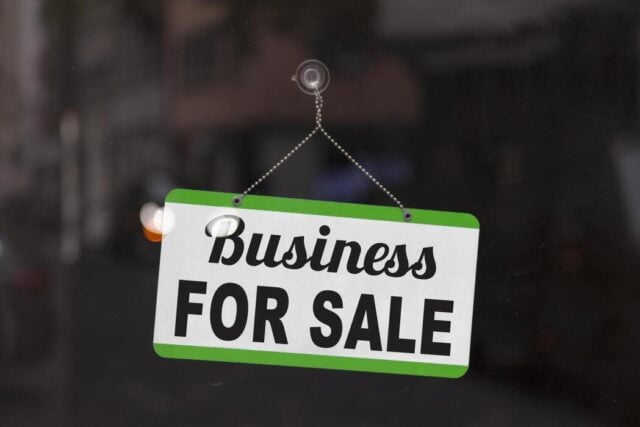
Selling your business in Florida can be one of the most significant financial and emotional decisions you as an entrepreneur make. The process is paperwork-heavy and legally complex. Rushing through it can lead to costly mistakes or disputes.
Before entering negotiations, get an independent business valuation. Understanding your company’s true worth, grounded in data and professional analysis, helps you negotiate confidently and avoid underselling or overpricing your business.
How to Sell Your Florida Business – Step by Step
1. Conduct a Thorough Valuation
Start by calculating your business’s value. A professional valuation goes beyond raw numbers; it considers your company’s revenue history, strategic position, geographic location, and industry outlook. Ideally, involve a company that specializes in business valuations in Florida to ensure a well-rounded and unbiased assessment.
Many sellers confuse fair market value with investment value, pointing to all the potential ahead and arguing that it justifies a higher price. Having started a business and put in sweat and tears, it’s easy to get emotional when it comes time to sell. Buyers, however, pay only for what the business is worth today. The gains from any future potential are the reward they earn for taking the risk and investing their time and energy. Understanding this key principle can help you sell your Florida business faster.
2. Decide Whether to Hire a Business Broker
A qualified broker can simplify the process by preparing marketing materials, screening buyers, and negotiating offers. However, brokers typically charge a commission of 6% to 10% of the sale price. What brokers won’t tell you is that the vast majority of small and medium-sized businesses listed for sale never get sold.
It can pay off to do the outreach yourself, or with the help of an advisor, to enter negotiations with the right prospects. Note that, not infrequently, the buyer is a competitor.
If you choose to proceed with a business broker, be sure to select one with a solid reputation and a clear fee structure, preferably outlined in an engagement letter that specifies terms, exclusivity, and termination conditions.
3. Prepare Your Sales Materials
The sale process typically begins with a Teaser: a short, anonymous document that introduces your company to potential buyers. It highlights key financials and opportunities without revealing your identity. Once a buyer expresses interest, they’ll sign a Non-Disclosure Agreement (NDA) to protect your trade secrets and access a detailed Confidential Information Memorandum (CIM).
4. Review the Letter of Intent (LOI)
Serious buyers will present an LOI after evaluating your business. This non-binding document outlines deal terms, pricing structure, closing conditions, and due diligence requirements. It signals genuine interest and sets the stage for final negotiations.
5. Negotiate and Draft the Purchase Agreement
The Purchase Agreement is the binding contract that finalizes the sale. It defines the purchase price, payment terms, representations and warranties, indemnification clauses, and closing conditions. Because this is a legally enforceable document, your attorney should draft or review it to ensure your rights and financial interests are protected.
6. Plan for the Transition
Work with your legal and financial advisors to manage final steps: collecting signatures, transferring ownership, and communicating with employees, vendors, and customers. A thoughtful transition plan helps preserve your company’s value and smooths the buyer’s onboarding process.
How Long Does It Take to Sell a Business in Florida?
There’s no fixed timeline. Some businesses attract buyers within weeks, while others take months or even years. Timing depends on factors such as industry, size, profitability, and market conditions.
What matters most is preparation. Sellers who invest in proper valuation, clean financials, and professional documentation tend to close faster – and at better prices.
Tips for Increasing Your Business’ Value
Whether you plan to sell your Florida business soon or simply want to strengthen its market position, increasing its value is one of the smartest investments you can make. Buyers pay premiums for businesses that are stable, scalable, and easy to transfer. Here are practical ways to make your company more attractive to potential buyers, and more profitable in the meantime.
1. Strengthen Your Financial Records
Clean, well-organized financial statements instantly build buyer confidence. Make sure your accounting is transparent and up to date. Avoid personal expenses on the company’s books, reconcile accounts regularly, and prepare professional profit and loss statements, balance sheets, and cash flow reports.
Buyers will want to see at least three years of consistent financials. Reliable records reduce perceived risk and often translate into higher offers.
2. Diversify Your Revenue Streams
Dependence on a handful of clients, suppliers, or products can drastically lower valuation. If more than 20–30% of your revenue comes from one source, buyers will view that as a red flag.
Expand your client base, explore recurring revenue models, and develop multiple product or service lines. Businesses that demonstrate resilience and flexibility in revenue generation typically command better prices.
3. Build Strong, Transferable Systems
A valuable business can operate smoothly without its owner’s daily involvement. Document your core processes, standardize operations, and implement systems that a new owner can easily understand and replicate.
Investing in automation, technology, and documented procedures reduces transition risk and helps prove that your success isn’t personality-driven but system-driven.
4. Strengthen Management and Staff
A reliable management team increases buyer confidence that the business will thrive post-sale. Identify and mentor key employees who can take on greater responsibilities.
Businesses overly dependent on the owner often sell for less because the buyer must replace that leadership immediately. A strong second tier of management can significantly raise the company’s value.
5. Improve Customer Relationships
Customer retention and satisfaction are key indicators of a healthy business. Maintain accurate customer data, track retention metrics, and foster long-term contracts or service agreements whenever possible.
Documented, recurring customer relationships provide predictable cash flow, something every buyer looks for.
6. Reduce Risk and Legal Exposure
Buyers perform detailed due diligence. Any unresolved legal, tax, or regulatory issues can delay or derail a sale.
Work with your attorney to review contracts, leases, permits, and compliance matters. Resolve pending disputes and renew critical agreements in advance. The fewer contingencies a buyer must handle, the higher your business’s perceived value.
7. Optimize Operations for Efficiency
Streamline costs and eliminate waste. Improving profit margins, even modestly, can have a multiplier effect on valuation since many businesses sell for a multiple of earnings.
Analyze your supply chain, renegotiate vendor contracts, and adopt tools that increase productivity. A lean, well-run operation appeals strongly to financial and strategic buyers alike.
8. Protect Intellectual Property and Brand Assets
If your business relies on proprietary technology, creative works, or branding, make sure your intellectual property (IP) is legally protected. Register trademarks, patents, and copyrights as appropriate, and ensure that ownership of all IP created by employees or contractors is properly assigned to the company.
A strong, protected brand enhances both market credibility and resale value.
9. Maintain Growth Momentum
Buyers pay for growth potential. Demonstrate consistent performance and a clear roadmap for future expansion. Document strategic plans, highlight scalable opportunities, and show evidence of increasing market share.
Even if you plan to sell soon, showing a forward trajectory positions your business as a thriving enterprise, not one in decline.
10. Plan Early and Get Professional Advice
The best time to start preparing your business for sale is at least one to two years before you list it. Early preparation allows you to fix weaknesses, document strengths, and negotiate from a position of power.
Engage a valuation expert, accountant or business attorney early in the process. Their combined expertise can help you avoid costly missteps and maximize your sale price.
Disclaimer
The information contained in South Florida Reporter is for general information purposes only.
The South Florida Reporter assumes no responsibility for errors or omissions in the contents of the Service.
In no event shall the South Florida Reporter be liable for any special, direct, indirect, consequential, or incidental damages or any damages whatsoever, whether in an action of contract, negligence or other tort, arising out of or in connection with the use of the Service or the contents of the Service.
The Company reserves the right to make additions, deletions, or modifications to the contents of the Service at any time without prior notice.
The Company does not warrant that the Service is free of viruses or other harmful components












